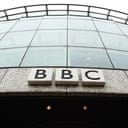BBC News and BBC Worldwide have agreed a deal that paves the way for advertising on the corporation's international website, BBC.com.
The BBC Trust is today discussing giving the green light to plans to allow adverts on BBC.com.
But MediaGuardian.co.uk has learnt that last week BBC News and BBC Worldwide, the corporation's commercial arm that oversees BBC.com, came to an arrangement that is being put to the trust this afternoon.
According to sources, Worldwide has agreed to pay a minimum guaranteed income to the public service broadcasting part of the BBC.
In return Worldwide gets the rights to use BBC news content for commercial gain and a licence to exploit the BBC brand commercially.
Worldwide will also cover the loss of around £4m a year that the BBC's international news website gets from the Foreign Office in grant-in-aid.
On top of that, Worldwide has guaranteed that a percentage of revenue raised from BBC.com advertising will go back to BBC news. It is not known what the percentage is.
Last year the National Union of Journalists was told that the figure would be around 20% but it is thought the actual percentage is less than that.
Opponents of the move to allow advertising on a BBC website have sent a round robin message to staff and a message to the BBC Trust, claiming that deal does not benefit BBC news as much as first thought.
They claimed that while BBC.com ad revenue would be in dollars, costs to BBC news would be in pounds, leaving the financial benefit to the corporation's public service broadcasting arm open to exchange rate fluctuations.
However, other sources denied BBC news is unhappy with the agreement as "all the major advertising firms work in dollars" and all major companies have to "hedge against market fluctuations".
BBC executives are keen for advertising on BBC.com to go ahead to help fill the gap left by a lower-than-expected licence fee.
Although the terms of the deal have been hammered out, BBC Worldwide cannot proceed with the proposals without the approval of the BBC Trust, which has already deferred the decision once.
The trust asked senior management for more information on editorial safeguards, how revenues would be fed back to the BBC and how the site fits with Worldwide's wider strategy.
But it is understood that BBC Trust chairman Sir Michael Lyons is keen to resolve the issue and sign it off today.
Last month MediaGuardian.co.uk revealed that BBC Worldwide sidelined research that found that US audiences would be turned off by advertising on the international BBC website.
According to a source involved in the research, a study commissioned by the corporation in late 2005 on the US west coast found that BBC.com users "unequivocally" believed advertising would reduce their trust in the BBC brand.
Further research, conducted in key US cities including New York and Boston, drew the same conclusions.
However, the BBC subsequently focused on later research studies that were more positive about the likely response to adverts on the international version of its website.
· To contact the MediaGuardian newsdesk email editor@mediatheguardian.com or phone 020 7239 9857. For all other inquiries please call the main Guardian switchboard on 020 7278 2332.
· If you are writing a comment for publication, please mark clearly "for publication".
